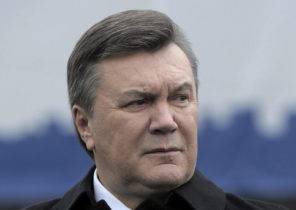
The solution of the “two Islands minus α”
During the Russian-Japanese summit, which took place in the middle of this month, Japan has not achieved tangible results, but I think that was the intuitive way with which Russia wants to settle the territorial issue: whatever the concessions, the maximum that will give Russia is Habomai and Shikotan. Let’s call this method “two Islands minus α”. At the moment Russia is not ready to concede one island, however, if the joint economic activity on the Islands will be successful, Moscow will negotiate on the return of the two Islands on certain conditions.
The struggle for the conditions on the basis of a joint Declaration
In Japan, everyone knows about the solution to the “two Islands plus α”. After the collapse of the Soviet Union in 1991, Japan has continuously conducted territorial negotiations with Russia, but it failed to come to an agreement on the return of the four Northern Islands and to confirm their identity.
At the same time in the Soviet-Japanese Declaration of 1956 signed between Japan and the Soviet Union, said that after the peace Treaty, Japan passed the Islands of Habomai and Shikotan. Moreover, President Putin has repeatedly said that he is committed to a solution based on a joint Declaration.
So if Japan refuses four Islands and change their decision on two Islands, Russia will immediately agree and go for a compromise on Kunashir and Iturup (plus α). The theory of the “two Islands plus α” appeared in Japan around the mid 2000-ies.
However, the concept of “two Islands minus α” is almost not discussed. However, if you remember Putin’s words, uttered before a trip to Japan, it becomes clear that the Russian side is trying to carve out favorable conditions, putting at stake the transfer of Shikotan and Habomai.
For example, during a conversation with journalists “Yomiuri” Putin stressed that Russia there are no territorial problems. Thus with regard to Shikotan and Habomai, he noted that the Declaration does not say under whose sovereignty and on what terms will be transferred to these Islands.
As in the Declaration referred to Habomai and Shikotan, he will discuss, however, from the territorial talks, Putin refuses.
The head of Russia does not apply to Kunashir and Iturup, as the Islands go beyond the joint statement.
I think Russia wants to propose the following solution: 1) Russia and Japan will begin joint business in the “Northern territories”; 2) they will sign a peace Treaty, even if not confirmed the belonging of the four Islands; 3) they will discuss the conditions for the transfer of Shikotan and Habomai.
I believe that in the case of a transfer Habomai and Shikotan Moscow will put forward such conditions, a waiver increasing the number of U.S. bases in Japan.
The focus of economic cooperation and a peace Treaty
The Putin administration will negotiate about the transfer only in case of development of joint economic activities on the “Northern territories”. Conversely, if economic cooperation will not have success and no peace Treaty is signed, Russia will not stick to the current concept, according to which will not be refunded nor an island. “This is not a problem that can be solved in one or two years. But I don’t think that’s unrealistic,” — said one of the representatives of the Russian side.
The representative of the Japanese side notes that the Russian approach is the concept of “two Islands minus α”. He fears that the struggle may take 20 years.
Despite this harsh reality, on the eve of Russian-Japanese summit in Japan has spread expectations that at least return the two Islands. Particularly it was affected by the statement of the Prime Minister of Japan Shinzo Abe made after a meeting with the Russian leader in September: then he stressed that there were opportunities for negotiation on the basis proposed “new approach”. Why spread an optimistic mood?
I think the reason is the Japanese stereotypes of Russia. In 2000-ies, when was the last Russian-Japanese negotiations on the territorial issue, the difference in the economic potential of Russia and Japan was too obvious.
It was assumed that if Japan offered to return only two Islands, Russia will agree. However, 15 years ago Japan’s GDP is 12 times superior to the Russian, but Russia’s GDP now is less than just four times. Moreover, in the result of the Chinese expansion has weakened Japan’s position in northeast Asia. Despite this, Japan continued to believe that the territorial issue would be easily resolved by agreeing on only two Islands.
The last meeting between Putin and Abe have destroyed the illusion. Meanwhile in Japan, a bit of diplomatic options. To strive for the signing of a peace Treaty and resolve territorial problems, gradually improving relations with Russia in General? Or not to compromise with Russia and not to demand of the island and a peace Treaty?
Japan has no ways to change the status quo in the short term, so it remains only the first option. This is my opinion.







